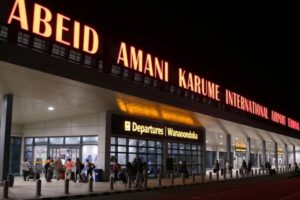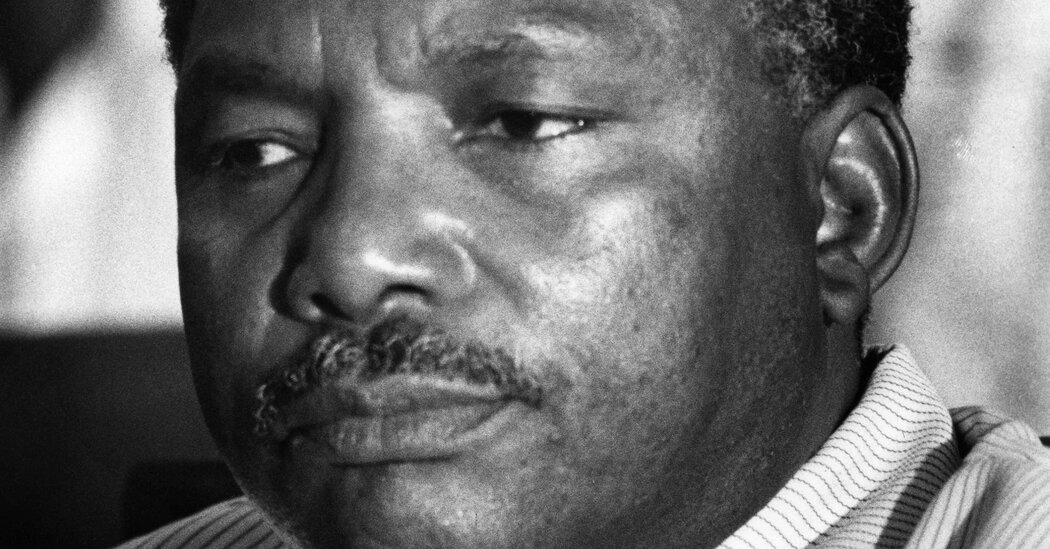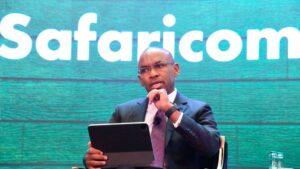Africa is steering clear of the debate on whether Israel should retaliate, de-escalate or if Iran was wrong or right in attacking Israel on Saturday last week.
Iran sent drones and missiles to Israel, marking the first direct attack on Tehran’s old-time enemy, even though the two had targeted each other via proxies.
And while world leaders have either condemned or urged escalation, the African Union is keeping a pass.
Read: How the Israeli-Hamas war is dividing Africa
European Union leaders were expected to discuss stepping up sanctions against Iran on Wednesday.
Sanctions are not supported by the AU in general. The bloc has always spoken about the need to lift sanctions imposed on Zimbabwe, Cuba and other countries by the West.
The AU had also been swift in condemning terrorist attacks around the world, including in Iran, and lay into Israel when it responded severely to the October 7 raid by Hamas, which is seen as an Iranian proxy by the West.
For Africa, the policy on Israel is never static. Israel had been growing its diplomatic footprint in Africa, reaching out to countries that had initially broken relations decades earlier.
After the October 7 attack in southern Israel by Hamas, however, countries like South Africa, Chad and Sudan announced pausing or downgrading ties in the wake of the brutality on Palestinians by the Israeli military.
South Africa and Algeria had also challenged AU’s initial steps to accept Israel as an observer state.
Read: Deny Israel observer status, activists ask AU
Yet the silence from the continental bloc hasn’t been reciprocated by member states, with some sticking out their voice in what could also show Africa is not speaking as one yet.
Kenya expressed concerns about Iran’s action, saying it is dangerous for the world.
“Kenya is deeply concerned by Iran’s attack on the state of Israel. This disturbing development only serves to aggravate an already delicate situation in the Middle East,” said President Ruto on X, formerly twitter.
“The attack represents a real and present threat to international peace and security, contravenes the Charter of the United Nations and should be condemned by all peace-loving countries.”
Kenya is deeply concerned by Iran’s attack on the State of Israel. This disturbing development only serves to aggravate an already delicate situation in the Middle East. The attack represents a real and present threat to international peace and security, contravenes the Charter…
— William Samoei Ruto, PhD (@WilliamsRuto) April 14, 2024
Ruto hadn’t spoken on earlier claims by Iran when Tehran said Israel had flattened a diplomatic mission belonging to Iran in Damascus, Syria, where seven officials died.
However, he urged Israel to show “utmost restraint taking into account the urgent need for all parties to walk away from the brink beyond which recovery will be enormously difficult”.
South African President Cyril Ramaphosa said, “As UN Secretary General UN Antonio Guterres has stated, there is a very real danger of a devastating region-wide escalation.”
“In this context, South Africa emphasises that all parties must exercise the utmost restraint and avoid any act that would escalate tensions in a particularly fragile region.”
Read: S.Africa asks ICJ to weigh Israel’s Rafah attack
Some observers think Africa is scarred by the debacle of the war in Ukraine, when the continent was ignored on its plea for dialogue.
South Africa, Senegal, Uganda, the Republic of Congo, Comoros and Egypt even presented an “African Peace Proposal” to Ukraine and Russia but were ignored.
Meanwhile, world powers are pressing African countries to take sides.
South Africa, traditionally an ally of Moscow, faced potential for an Agoa ban if it continues to hold military cooperation with Russia, now heavily sanctioned in the West, for invading Ukraine.
After the Iranian attack, Moscow blamed the UN Security Council for failing to provide a response to Israel’s “provocation on Iran”.
“We have warned repeatedly that the numerous unresolved crises in the Middle East, primarily in the area of the Palestinian-Israeli conflict, which are often fuelled by irresponsible, provocative actions, will exacerbate tensions,” Moscow said on Monday.
Iran meanwhile has cited self-defence. Article 51 of the UN Charter says a nation or group of nations may have inherent right to self-defence or collective self-defence if attacked.
Some legal experts have argued the right to self-defence does not always mean resorting to deadly violence.
“The response was in the exercise of Iran’s inherent right to self-defence…and proportionate response to the Zionist Regime of Israel’s recurring military aggressions,” said the Iranian Embassy in Nairobi on Tuesday.
Iran had said Israel attacked its diplomatic premises in Damascus on April 13 “which led to the martyrdom of seven Iranian senior military advisers”.














